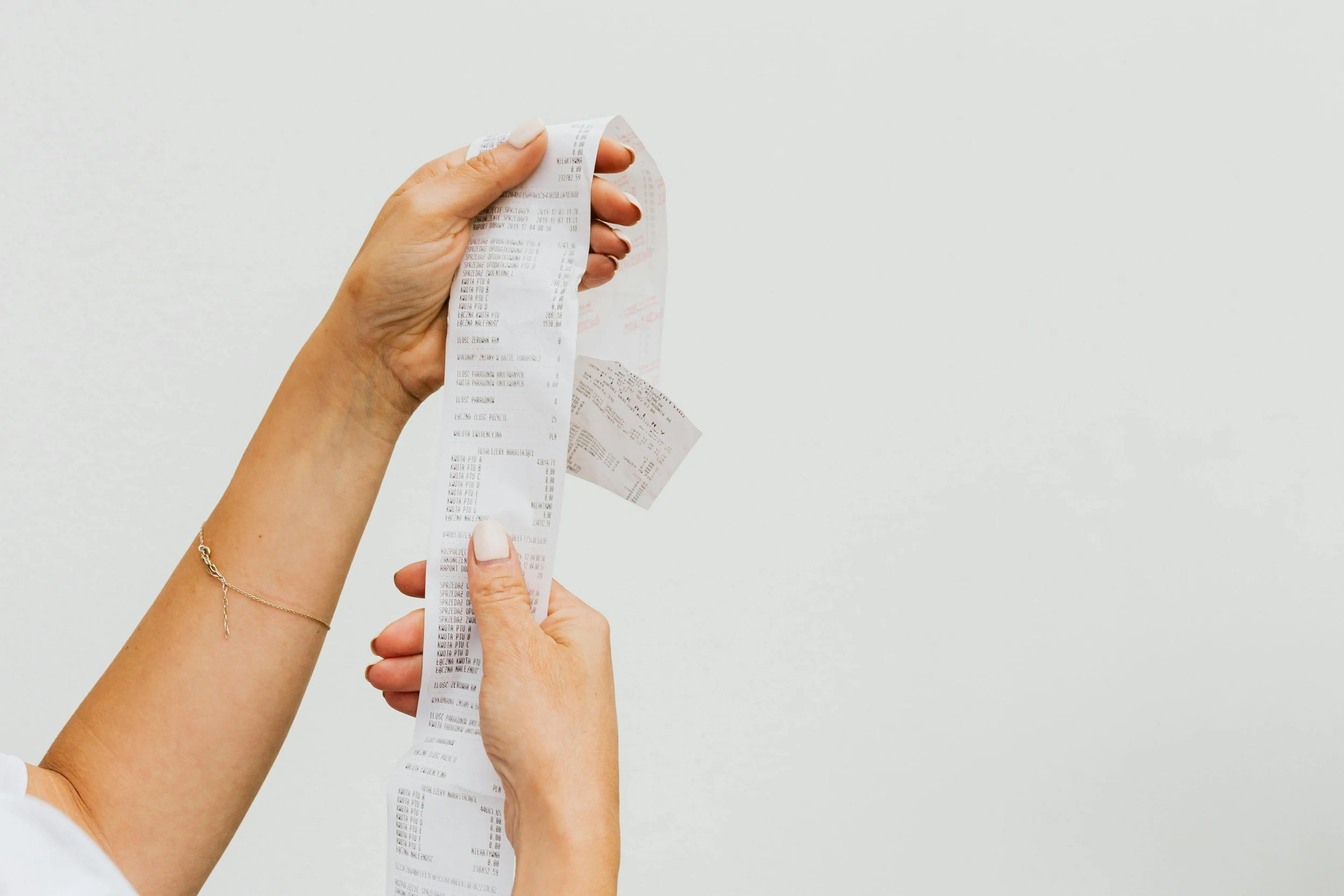There IS Ethical Consumption under Capitalism
“There’s no ethical consumption under capitalism!” says someone with their arms full of disintegrating polyester from Shein. These capitalists and nihilists would say there is no ethical consumption because all commodities we consume in a capitalist society are produced under conditions of exploitation. There is also concern for capitalism, since it is the system used to make unimaginable profits by underpaying workers and extracting natural resources. These circumstances are unethical, but present in all the production of commodities, making many believe that there is no ethics under capitalism. So, in this blog post we will explore the nuance of morality, consumption habits and our role under late-stage capitalism.
Morality in a Last-Stage Capitalist Society
So if there is no ethical production, can there still be morals in society? This question depends on how we define morality in our daily lives, on whether we see it as a personal compass or as something that must exist collectively. We must especially take this into account given the current climate crisis, the rising cost of living, and the reality of people working multiple jobs just to survive all expose the deep-rooted inequities within our system.
Corporations, driven by the relentless pursuit of profit maximization and shareholder value, often do so at the expense of people and the planet. This obsession with profit above all else have seeped into our consciousness, shaping not only how we live but also how we think, feel, and justify our actions within capitalism.
The twist here is that the concern of our shopping habits have become more important, from what we eat to what we wear, is shaped by this system. And these choices are deeply political; they are constrained by class status, access, privilege, and supply chains.
This makes the idea, “there is no ethics in these practices”, seem like a reality when our current economic system is built on exploitation, even when we try to resist it. Yet, morality can help us navigate contradictions, by asking ourselves how we can live ethically when the structure itself is unethical.
“There Is No Ethical Consumption Under Capitalism” Catchphrase
Many have explained that “there is no ethical consumption under capitalism”, and has even become a rallying cry within online spaces like YouTube and TikTok. It’s often repeated by both leftist/progressive and far right creators, activists, and commentators, many who speak from a place of privilege, to critique the system they comfortably operate within. We must always be wary of self-congratulatory conversations that are detached from societies collective struggle.
Others have used this phrase as a way to relieve guilt about buying from fast fashion brands or supporting exploitative industries. They argue that capitalism has corrupted every system, leaving individuals powerless to make meaningful change. But isn’t this a moral loophole: if the system is irredeemable, why even try?
This what we must consider when individualism and comfort can lead to complacency. And even if it’s true that systemic issues shouldn’t fall solely on individual choices, it’s also true that moral awareness and collective action begin at the individual level.
We cannot deny our agency entirely, or else we give up the possibility of transformation.
The question, then, isn’t whether morality can exist under capitalism, but how it can evolve in resistance to it and how we can redefine what it means to live ethically in a world that makes that feel nearly impossible.
If there is no way to avoid harm, why bother trying to minimize harm at all?
This is the question that sits at the center of our moral crisis, one we must confront in a culture built on individualism and Western privilege. The American way has long celebrated self-interest, comfort, and the illusion of freedom, yet these very ideals are what distance us from collective responsibility. Taking action, in this context, is not just about social issues, but the moral filter we use on how we perceive as good or bad, what we feel we owe to others, and what we choose to ignore. We have the choice to dictate our values, our behaviors, and even our sense of empathy at our own convenience.
Moral Distortion in American Individualism
We see moral distortion play out daily when we scroll past suffering on our screens while eating dinner. We watch the world burn in real-time, then refresh the feed. We are overstimulated yet emotionally numb, addicted to pleasure, comfort, and distraction. We struggle to pay the bills yet have the luxury of bed rotting, doom scrolling, and building dissociation from a culture that prioritizes comfort over conscience. When privilege makes detachment easy, morality becomes optional.
Privilege also means having the ability to turn away from struggle, to opt out of discomfort, and to ignore violence because it doesn’t directly touch us. And yet, those with privilege often hold the most power to create real change. But how many actually do? How many volunteer at food pantries, show up for protests, or commit to grassroots organizing? The truth is that moral responsibility often stops where inconvenience begins. The power to help, to truly make a difference, can go completely unused if we surrender to the moral decay embedded in the American way of life.
Stepping outside of self-centeredness is necessary if want to do good. No matter how overwhelming the world may seem, even when it feel like we are shouting into a void, we must do what we can for the greater good. But moments when walking away seems easier, more comfortable, and even rational, the phrase “there is no ethical consumption under capitalism,” becomes more normalized.
This is deeply troubling as the privileged stay silent, while low-income BIPOC communities are forced to suffer. The convenient excuse for inaction even gives space for the undue justification of inaction because nothing can truly be ethical anyway. No one forces us to confront the real impact of our choices, and so many choose not to. Because if there’s no immediate reward, no tangible benefit, why care? If the system is broken beyond repair, why bother to act differently?
But that mindset is exactly what the system wants. Capitalism thrives on apathy and moral detachment with the belief that nothing can change to ensure that nothing will. And perhaps that’s the most dangerous harm of all, not the harm we can’t avoid, but the harm we no longer care to minimize.
Ethical Consumers in an Overconsumption Era
We must question the motives driving excess overconsumption that is not just normalized, but celebrated. Yet, when was the last time we had conversations about ethics, and considered our social responsibilty given our class status. and class status replace actual change. And oddly enough, those that do better label themselves as, “ethical consumers”, can get wrapped up in their morality, falling into ethic-based superiority complexes that inflate egos and thoughts.
Imagine shaming others for avoiding single-use plastics, thrifting their entire wardrobe, or swearing off fast fashion, as if moral worth can be measured by what we buy or refuse to buy. The line of doing good and thinking your better than others can be a slippery slope. And even when these choices may stem from genuine care, they also reveal a hidden truth: it takes privilege to even have the time, money, or access to think about consumption ethically.
Most people aren’t strategizing their next eco-conscious purchases because they’re struggling to get by. The average working-class consumer doesn’t have the luxury of choice when it comes to sustainability. Major brands offer what capitalism produces: cheap, fast, and disposable goods, whether that’s Shein, McDonald’s, or the convenience of Amazon Prime. The system is intentionally designed to keep us consuming without rest or care, replacing rather than repairing, buying rather than reflecting.
That’s where “ethical companies” often step in to fill the moral void. They market themselves as antidotes to fast consumption by promoting handmade goods, locally sourced materials, fair wages, and eco-friendly packaging.
These ideals are beautiful in theory, but they also create a new aesthetic of morality, one that can be easily commodified.
And consumers believe it, because I remember living with granola girls in Montana who took sustainable living too serious….
They reminded me where to throw my compost, gave me a whole recycling schedule, and insisted I take the La Croix boxes out for recycling every week.
It was a ritual of righteousness and responsibility that they outsourced to the low-income Latina (me). And while their intentions may have been genuine, I couldn’t help but laugh in scorn. I didn’t even drink La Croix, and that acidic demon water didn’t need to be consumed at ungodly levels.
The most sustainable drinking option is filtered sink water, not packaged La Croix.
Still, that experience reminded me that being an ethical consumer looks different for everyone. There’s no single blueprint for doing good in a world so tangled in contradictions. But when money dominates nearly every aspect of our lives, the idea of “purchasing power” has become the new moral framework.
This is a prime example of how capitalism convinced us that our buying choices can shape the kind of world we want to live in. And while there’s truth to that, it also places too much moral pressure on individuals, as if buying the right product is the ultimate act of change. The truth is our shopping choices won’t change the world. We also have to remember that no one is a perfect consumer. Expecting ourselves to reach utopian perfection in an imperfect world is just another trap, a capitalist fantasy to inspire frustration and inaction.
Still, we can’t ignore that “buying ethically” isn’t enough. This isn’t a black-and-white path where good people shop sustainably and bad people don’t. The uncomfortable truth is that only a small fraction of people can afford to live entirely “ethically” and those people often benefit most from the very wealth inequality that capitalism creates. This means that ethical consumption cannot exist in a vacuum or in a class bubble. We have to work on it by volunteering, organizing, and providing mutual aid and solidarity. Because no amount of eco-conscious shopping will dismantle wage theft, corporate greed, or systemic inequality.
Yet, human imperfection doesn’t mean ethics can’t exist under capitalism; it simply means we try to make ethic exist within it, which is a messy and complicated effort. It also means accepting that contradictions don’t erase our capacity for goodness; rather, they highlight it. So, let’s acknowledge systemic harm while still choosing to act with compassion, thoughtfulness, and care. The point isn’t to escape complexity, but to live ethically despite it.
We cannot lose sight of what truly matters: the constant, imperfect effort to create good in a world that profits from our indifference.
What we do today may not dismantle capitalism overnight, but will help us address its most harmful consequences. We must also challenge the normalization of exploitation, oppression, and environmental destruction built to exploit people and the planet. Hopefully, these small acts illuminate what can exist beyond endless production and consumption.
Fair Trade Consumerism Amidst Fast Fashion
The future of ethical consumption depends on local initiatives that move beyond surface-level sustainability and embrace alternative modes of production. This means creating systems where businesses operate without private ownership over the means of production, where workers have a real stake, real agency, and real power. Because as long as companies employ wage laborers who hold no ownership, the cycle of exploitation remains unbroken. If unbroken, ethical consumerism will continue to benefit the wealthy top elite.
But we have shown the power of collective action to ward off evil brands. One example of this was the mass boycotts against Starbucks. Despite years of being told that consumer resistance is futile, coordinated boycotts caused visible cracks. Starbucks executives scrambled, reputations faltered, and the illusion of corporate invincibility broke. So yes, boycotting can work and brands should change their business practices. But the bigger question remains: what does it actually take to see ethics and sustainability not just as marketing trends, but as core values within capitalism, business, and production itself?
Lets envision this together, and avoid the oversimplification that there’s no ethical alternative to capitalism. Individual actions matter and morality isn’t just a fantasy. Every compounds, no matter how small it may seem.
Many corporations are aware of this and rely on Corporate Social Responsibility (CSR) efforts to address issues. Yet, CSR often becomes damage control with slick reports full of buzzwords, glossy sustainability pages that obscure the real harm being done.
There are, of course, well-intentioned people working in these roles, people who genuinely want to make a difference.
But even they are often trapped, trying to navigate a moral labyrinth inside the very system they hoped to reform. It’s a painful irony that speaks volumes about how deeply capitalism co-opts good intentions and value-based individuals.
The Illusion of Ethical Guarantees
The fashion industry needs to offer fair wages, good working conditions, and human rights, especially in the Global South. This requires that we reshape the moral foundation of commerce itself. Values can push this forward like: transparency, accountability, equity, and responsibility. If upheld and expanded, it could become the blueprint for an economy rooted not in overconsumption, but in justice, care, and human dignity.
But many critics argue that sustainable or fair-wage businesses are doomed to fail because the market doesn’t reward ethics. It rewards efficiency and profit versus anything else. Also, paying workers fairly, sourcing materials responsibly, or producing locally makes a product more expensive. This can be a hurdle for consumers to swallow when they are used to bargains.
But imagine this: What if companies were built less on competition and more on cooperation? What if profit wasn’t the only goal? Of course, I’m not naïve enough to think capitalism can fix itself with more capitalism. But I do think we can remember what we once had, like local stores, family-run businesses, and communities that cared. Spaces where relationships, not margins, defined success.
Now, those spaces are disappearing because when Walmart moves into a neighborhood, it offers convenience and cheap prices, but at the cost of labor exploitation and community erasure. Mom-and-pop shops can’t compete when monopolies thrive on domination. These corporate giants commit human rights abuses to cut costs and crush competition. And the public, lured by discounts, becomes complicit in that cycle of destruction.
That’s why we must focus on the top one percent, which rule corporations that destroy cultures, exploit workers, and devastate ecosystems. They must be held accountable because we cannot afford apathy, nor can we hide behind “choice fatigue” or hopelessness. Apathy has never liberated anyone; it only kills what’s human and sacred within us. If we give in, we’ll continue numbing ourselves with consumption and chasing the next trend to feel relevant, the next outfit to feel seen, and the next deal to feel alive. We’ll keep buying cute knick-knacks and creams for our already-soft hands, never pausing to ask whose hands made them, and at what cost.
Final Boss of Ethical Consumption
Consider buying less, repairing what you already have, and loving your clothes enough to wear them long after their trendiness fades. Choose timelessness over novelty and support local, but also understand that not everyone can afford to shop sustainably.
Do what you can and remember that the phrase “there is no ethical consumption under capitalism” shouldn’t be a shield for inaction. It’s not an excuse to give up, but a reminder to fight harder for systemic change so that ethical choices become accessible to everyone.
Don’t give up hope, sayings come and go. This phrase is just a paradox that exists because people want to find a way to consume ethically. It should be a provocation, not a resignation, on how we move forward.
So let’s keep questioning the system by being critical and compassionate. We must engage with the complexities of ethics in an economy built to distract us from them. Because even among mindless consumerism, awareness and intention matter, they’re the seeds of the world we’re trying to create.






